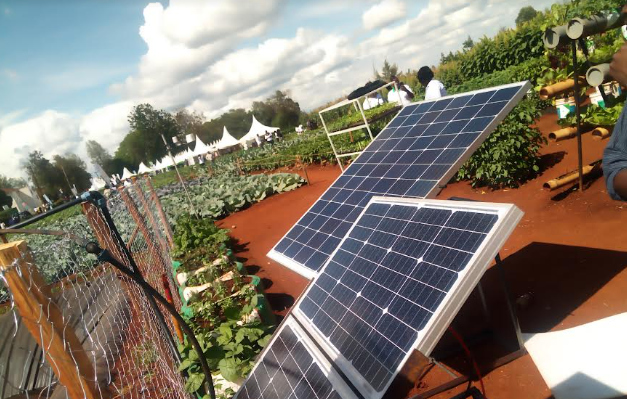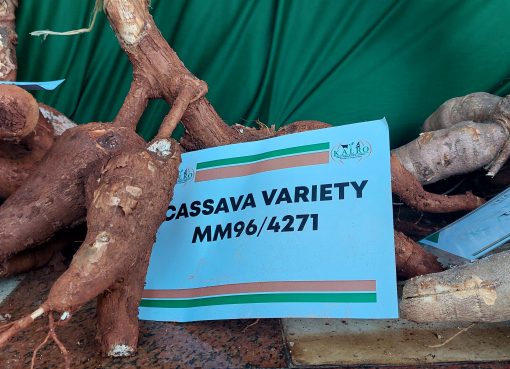Youths from 24 countries in Africa have demanded a swift shift towards agroecology, especially in these times of climate and food crises.
The youth who were in Kenya for the last three days for the 1st ever Africa youth summit on food systems also declared unwavering commitment to advocating for an immediate transition to agroecology for sustainable food in Africa.
“As representatives of Africa’s vibrant and dynamic young generation, making up at least 60 per cent of the continent, we recognize the pressing need to address the critical challenges facing the future of our continent’s food systems and sovereignty,” the youth who met under the umbrella of the Alliance for Food Sovereignty Africa (AFSA) said.
Reading a declaration on behalf of the youth at the end of the summit, Joyce Brown, coordinator of the Youth Platform of AFSA, said agroecology represents a sustainable agricultural practice, and by adopting it, we can nurture a regenerative and inclusive food system that respects cultural heritage, preserves social values, and safeguards African identity.
“From all the deliberations we have had, it has been agreed that the time to transition to agroecology is now, so we are calling on governments to support that transition because agroecology addresses the common global challenges that we face and particularly the challenges facing Africa in terms of food security”, she said.
She explained that the youths are very enthusiastic about agroecology because they understand that it is the sustainable way to farm, to protect and preserve the ecosystems, as opposed to industrial farming, which destroys ecosystems and biodiversity.
“The youth are getting involved in soil management, for example, by making organic fertilizers instead of inorganic chemicals that degrade the soils. We are also into biodiversity conservation as well as agro-ecological entrepreneurship to show that it works”, Brown added
As farmers, the youth asked governments to ensure there are policies that safeguard the land rights of youth, particularly women and marginalized and indigenous groups, by ensuring equal distribution of resources to empower their entrepreneurial endeavors.
“Tailored financial assistance such as grants and subsidies must be provided to bolster the efforts of young farmers and agro-ecological entrepreneurs, as this will enable them to invest in sustainable agricultural practices, innovate technologies, and engage in value-added activities”, Brown said.
The youth also called for support when it comes to education, saying they will require skills for sustainable farming practices, climate change adaptation, and seed management and conservation.
“This can be done through integrating agroecology and environmental education into school curricula and establishing vocational training centers for youth in the agriculture sector. Empowering the next generation of farmers will pave the way for a resilient and sustainable future,” they said.
Lastly, the youth demanded a seat at the table when it comes to policy and programme design by including their voices in agriculture, climate change, and food system policy discussions.
Dr. Billion Belay, General Coordinator at AFSA, said they have started a youth wing in order to promote agroecology and that the youth leaders from the 24 countries in Africa are discussing the role of the youth in agriculture and specifically the agriculture that is needed.
Through this meeting, the youth leaders are planning to organize the biggest youth convention in Africa next year, where more than 1000 youths will come together to discuss the future of African agriculture,” he added.
Belay said that food imports in Africa are increasing and also exporting instead of the continent trading among itself instead of exporting outside, and this has made African countries continue to be in debt.
“We are wallowing in debt. African countries agreed in the Maputo Declaration to allocate 10.5 of their GDP to agriculture, but they cannot do it since they do not have the money. The debt is so great that African governments borrow money to pay the debts; hence, the debt level is increasing”, he noted.
The coordinator noted that the investment level is also becoming difficult since the majority of payments are for the purchase of fertilizer and agrochemicals, yet the countries can go organic and produce food in a healthy way and thus cancel the debts.
There is a need to have an African levy on food policy both at the country level and the continental level just to encourage countries to produce their own food and also to sell amongst themselves, Belay said.
Warda Mohammed, 20, an environmental champion from Kisumu who nurtures young kids between five and six years old by putting up kitchen gardens, said that what motivated her into agroecological farming was her grandmother.
“We have been making kitchen gardens by recycling materials, namely plastic bottles and hair braids for fencing, and this summit has helped me learn even more and gain ideas on how I can expand my farming,” she said.
Warda said that her message to the youth, not only in Kenya but in Africa, is to go back to their culture and roots when it comes to growing traditional food and not rely so much on western foods.
“The young people are being advised to get involved in agroecology because the future is ours. If we destroy the soils today, we destroy the ecosystems today. We will only be depending on junk food, which is not good for our health,” she emphasized.
According to the Food and Agricultural Organization (FAO), the youth have already made significant steps forward in getting climate issues on the world stage, noting that the youth are key to transforming agrifood systems for the better, creating a new system that can meet modern challenges and provide nutrition for a growing population.
By Wangari Ndirangu





